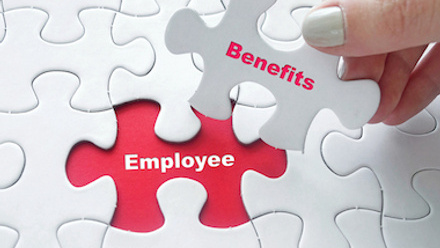Relocation checklist: how to help soon-to-be expats prepare

To make sure they don’t forget anything important before they board that outbound flight, review and share with them this checklist so they’ll be informed and prepared.
Identification documents
Depending on where they live now and where they’re headed, they’ll likely face a small mountain of paperwork. That’s why it’s especially important to make sure they have all their identification documents in order as soon as possible.
This will likely include their birth certificate, marriage certificate, passport and driver’s licence (domestic and/or international). If they have the originals, their bank or solicitor should be able to certify a copy for them. If they don’t have the originals, they can apply to the relevant government department office for a new copy.
If their passport is due to expire shortly after their move, it’s a good idea to apply for a new one now. It’s possible to get a new passport while overseas, but the process can be complicated and may require an interview. In many cases they may need an international driving permit — a translated version of their existing licence that’s accepted in many countries.
Employees may find that their destination country allows them to drive using their existing licence, but this is usually for a short period only. They may also be required to take a new test in their new country, even if they’ve been driving for many years.
Work permits, visas and personal ID numbers
As the employer, you’ll be taking care of obtaining work permits and visas – but you may want to contact the destination country embassy and/or hire an immigration lawyer to avoid common mistakes.
Employees living abroad will also need a personal identification number, which is called something different depending on the country. For instance, it’s called a Social Security Number in the US; a Tax File Number in Australia; and a National Insurance number in the UK. And employees may not be able to get one until after their visa is approved.
Financial considerations
Many expats find themselves struggling financially because they haven’t accounted for certain expenses. Before they move, they should work out their estimated cost of living using online calculators such as Expatistan or Numbeo, to figure things out and compare prices of various products and services. They’ll also want to put together a moving budget that accounts for expenses for visa and passport renewals, predicted costs of the move, and settling in expenses.
Your employees’ banking institutions may apply hefty charges or tax levies for accessing their accounts from abroad, so it’s important for them to talk with a bank manager about their options. They can consider opening a new account in their destination country to make it easier to manage finances and save on currency conversions.
And they’ll want to make sure that tax authorities at home know about their plans. They should check with taxing authorities or an accountant to find out which regulations apply and which forms they’ll need to complete.
Health systems, medical care and insurance
No matter how fit and healthy individual employees may be, none can predict when illness or injury will occur. Making sure they are sufficiently covered by an international private medical health insurance policy is essential.
Before a plan is chosen, chronic health conditions and the level of care desired (ie flying home for treatment, choice of doctors and hospitals) should be well-defined. It’s also important to understand the health care system, level of quality and access to care available at the destination.
Expats will also need to keep in mind what access they’ll have to their prescriptions and any needed medical equipment. Many medications used every day in one country are illegal in other countries – and some expats can find themselves in hot water without knowing. They or their healthcare provider should check the laws and regulations of their destination country. It may turn out that the medication they normally take is hard to source or goes by a different brand name there.
Housing
When looking into housing options in the new area, employers and the travelling employees should take into account priority criteria such as proximity to schools, safety concerns, type of housing, distance from towns/cities and quality of infrastructure.
For those on a long-term assignment, consider renting for a time before choosing to buy.
For those employees who own property at home, they can choose to either sell or rent – but recognise that selling a house can take a long time. If they don’t have sufficient time to sell or would prefer to rent their home, they’ll need to understand the tax implications and maintenance requirements of being a landlord. Management companies can sometimes be hired to take on that role for them.
Family members and pets
Spouses relocating due to an employee international assignment often have difficulty finding work themselves. They can get started before they leave by looking at job sites, expat employment agencies, additional certifications or training needed, average salaries in their field and whether they’ll need to apply for a work permit.
If employees’ children or other family members will need to be in school, they should find out how the educational system works in their destination country. When considering schooling options, they’ll want to keep in mind: the curriculum; language; location; quality; cost; space and culture.
Many schools have limited space, so it’s important to get on a waitlist if offered as soon as possible. Some schools allow expats to register before they arrive.
When it comes to family pets, they may need to be quarantined in the destination country before they can come to live with the family. If the work assignment is fairly short, employees might prefer to find a relative or friend who’s happy to care for their pet while they’re away rather than take them along.
If employees do intend to take pets abroad, they’ll have to check country requirements and apply for a pet passport. They’ll likely need proof that their pets have had certain vaccinations.
Moving logistics
When an international assignment is driven by work needs, it’s not always ‘the right time’ to move. But whenever possible, you and your employees should consider the impact of seasonal differences between the two locations as well as public or religious holidays or special events that might occur during a move.
If employees will be moving to a country with vastly different weather, consider having them move during the mildest month so that they have a chance to acclimatise. If their children are moving with them, aim for the summer holidays so that they can join their school at the start of a new year. If employees are travelling alone or with a partner only, it may be better for them to avoid moving in the summer and other times of the year that are popular with tourists in that region.
Once the move date is set, it’s time for employees to decide what they’re going to take with them and start making lists. They should keep in mind customs restrictions, the size of their home on the other end, and shipping allowances for employer-sponsored moves. There may be some items they won’t be allowed to take with them, such as firearms, antiques or valuable memorabilia.
When arranging for an overseas move of household items, you or they will want to get quotes from three to five reputable international removal companies at least one month in advance of the move. You’ll get a more accurate quote from companies willing to visit the home where items will be moved from.
Before the move, employees should check to find out whether their appliances and electronics will need power adapters or converters. They can also tell the postal service in their home country to redirect any letters or parcels to their new address. The cost for this short-term solution can be high – and redirected post can take a long time to reach its destination – but they can usually choose how long they’d like the redirection to last.
Local laws, customs and language
It’s important for employees and their families to have a basic understanding of the laws in their destination country. Can they smoke and drink in public? Are there any laws about what they can and can’t wear? Do they need to cross the road at a designated crossing?
Locals are generally more welcoming to foreigners who make visible efforts to speak to them in their own language. Expats can take a few lessons before they go and learn a few key phrases with a guide book. They don’t need to be fluent by the time they move, but knowing some basic words such as ‘please’ and ‘thank you’ and practising them at home is a good place to start.
If they’ve never visited the country they’re heading to, consider sending them on a pre-move trip so that they have a better understanding of what it’s like to live there. This has proven particularly effective at helping younger children prepare for the move and the idea of moving.
Employees remain citizens of their home country when they go abroad and as such, won’t lose their eligibility to vote. But in many countries they’ll need to ensure they are registered or otherwise noted as being able to vote by post (absentee) or by proxy (nominating a trusted person to place their vote in their absence).
Network and support
Helping employees with pre-trip planning like this can go a long way toward minimising problems and stress once they’re abroad. Provide resources such as expat organisations in the destination country that can answer questions and support employees as they get settled into their new home. Social media expat forums can also be a great source of peer support and logistical advice – as long as the information provided is verified with credible sources.
Aetna has compiled destination guides for several countries to help expats relocate. They include information on local healthcare provisions, tax and visa rules, as well as information on housing, cost of living and culture and lifestyle.
This article was provided by Aetna.
In partnership with Aetna
Aetna is re-shaping and improving health care across the globe by developing solutions.







